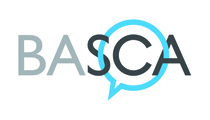This website uses cookies so that we can provide you with the best user experience possible. Cookie information is stored in your browser and performs functions such as recognising you when you return to our website and helping our team to understand which sections of the website you find most interesting and useful.
Business News Labels & Publishers Top Stories
BASCA launches campaign over digital income
By Chris Cooke | Published on Friday 6 February 2015
The British Academy Of Songwriters, Composers And Authors yesterday announced a new campaign called The Day The Music Died, which aims to give a louder voice to concerns in the songwriter community about the changes occurring as the music business shifts from CD to digital, and from download to streams.
For a year or two now concerns about the future of the music industry have seemed strongest in the songwriter community – especially amongst those who predominantly write songs for others, and do not have a double life as a featured artist – and for whom, therefore, the opportunities of a booming live sector, brand partnerships and direct-to-fan are not so apparent.
Announcing its new initiative yesterday, BASCA said: “It should be noted that a significant number of mainstream artists enjoying chart and commercial success do not write their own material and perform songs composed by professional songwriters”.
But, it goes on, “songwriters and composers, whose primary income has traditionally derived from physical sales, are now finding their livelihoods under dire threat. Sales from physical formats have plummeted by over 50% in under a decade as music consumers have moved online. However, during this mass migration the ultimate creator of the music, the songwriter, has been forgotten”.
Songwriters do get paid when their songs are consumed (via legitimate channels) online, usually via their publishers and performing right collecting societies. And in percentage terms they are receiving a similar cut of the pie as they did in the CD age (in most cases slightly more). However, the recorded music pie is significantly smaller today than during the heyday of the compact disc, so in real terms they are making quite a bit less money.
And, unlike the labels, they don’t enjoy the advances and equity and other kickbacks from the emerging digital music sector, nor the commercial benefits savvy recording artists can enjoy from an engaged online fanbase.
In terms of who the bad guy is in BASCA’s story, it depends on which of the demands being made by the new campaign you consider. In calling for more action to stop websites distributing unlicensed music from appearing in search engines, the enemy is Google, and BASCA speaks as one with the wider music industry, and the licensed digital platforms.
But when it comes to its call for more transparency about how digital deals are structured, the songwriters speak with the artist community, but against the record labels, digital service providers and their own corporate allies in music publishing.
And as for the demand for a bigger cut of the digital pie, well, it depends on which of the other stakeholders they expect to give up a slice of their share: their publishers, the DSPs or the labels. Although not specifically stated by BASCA, it is likely the latter that will feel most of the heat, and in that respect the songwriters will be in tune with the music publishers (especially those that don’t have sizable sister record label businesses).
There is an increased belief in the publishing and songwriter community that splitting the revenue generated by recorded music consumption so that the vast majority goes to the label is no longer fair or sustainable. True, the labels still invest most heavily in new talent, and pay for content to be recorded and pumped online, and lead on the marketing of those recordings. But, many songwriters and publishers would argue, the label’s risks are not as significant as in the CD era, plus many record companies now secure their new talent investments on revenue streams beyond copyright.
Though quite how that particular dispute can be addressed is debatable. In the US, where some of the licensing is done under compulsory licenses at rates set by government or the courts, there is a framework for lobbying for a shift in the splits (and yesterday’s Copyright Office report Stateside touches on that issue). But in the UK, beyond ramping up the rates and letting the matter go to Copyright Tribunal, there are few formal channels of that kind. And in digital the labels and publishers license separately, putting the DSPs in the middle of the dispute.
Nevertheless, BASCA is seeking the support of the political community for its campaign, and is calling on its members to write to their local MPs to outline the issues they face, while the association itself lobbies lawmakers in both Westminster and Brussels. What response it gets remains to be seen.
Announcing the project, BASCA boss Vick Bain told reporters: “Without songwriters and composers there is no music industry and it is, therefore, scarcely believable that writers are almost an afterthought when it comes to getting paid for their work from digital sources. It is not an exaggeration to say that unless things change and change soon the incredible legacy and future health of British songwriting is at real and immediate risk. They need better protection and better remuneration and action needs to happen swiftly”.
This whole debate is set to be put under the spotlight at this year’s CMU Insights programmed Great Escape Convention, with the full-day conference strand ‘Music Licensing – Explained At Last!’ We will explain in simple terms how digital licensing is working, and where and why the disparities occurred, before giving key players from the music rights business the opportunity to share their viewpoints. To attend you need to get yourself a delegates pass to TGE, which you can do so right here.






